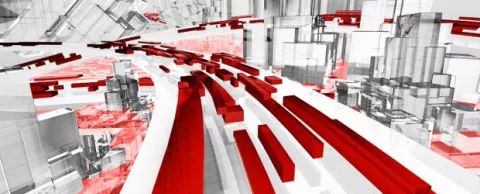
As urban mobility becomes a top priority for many cities, driverless cars and the technologies that make them possible are attracting a lot of attention from city leaders and planners. And rightly so. The technologies are evolving rapidly as car makers like Council Lead Partner Daimler company Mercedes Benz and tech giants like Associate Partner Intel invest increasing amounts of time and money to make them a reality. The story below underscores the primary concerns, including the safety of the public and the vehicles themselves. But autonomous cars able to navigate public highways and streets without human input seem to be a certainty, eventually. We can't be sure when driverless cars will be commonplace, but we are sure cities need to be ready for them with the infrastructure and connectivity they need. Several car companies have said they plan to have self-driving cars on the road within the next three years. That's not a lot of time. — Doug Peeples
Two years ago, California regulators proposed hefty restrictions on driverless car testing on public roads. But times change. The state's DMV is now asking for public comments on new regulations that could put the cars on city streets as early as the end of this year.
California has already licensed 27 companies to test driverless vehicles on public roads, from car makers Mercedes Benz, BMW and Tesla to suppliers and tech companies. The state's DMV recently opened a 45-day public comment period on regulations to allow those companies to test the vehicles on public roads which will be followed by a public hearing on April 25.
Specifically, the proposed regulations pertain to testing cars without controls (such as pedals and steering wheels and public use of the vehicles. The state has had autonomous vehicle testing regulations on the books for a couple years, but they excluded completely self-driving cars because of safety concerns. The new proposed regulations are more inclusive and would allow companies to verify that their vehicles could operate safely without typical controls.
Following the rules
If the regulations are enacted, manufacturers would still need to comply with federal safety standards unless cleared by the National Highway Traffic Safety Administration, DMV Deputy Director Brian Soublet said during a press conference. The Times of San Diego quoted him as saying DMV will "rely heavily" on driverless car guidelines released last year. Also, vehicle testing must include a remote operator who can track the vehicle and communicate with passengers.
There has been a lot more activity in the connected and autonomous vehicle arena and much of it will interest city leaders and planners working on strategies for accommodating them.
- Intel will buy Israeli tech firm Mobileye for $15.3 billion. The company is responsible for about 70% of the world's market for driver assistance and collision avoidance technology. Council Lead Partner Qualcomm announced it would buy major automotive chip provider NXP.
- Volkswagen showed off Sedric (named from the words self-driving car) at the Geneva Auto Show. As Fortune described it, Sedric very much resembles a 1980s style boombox. It has no steering wheel or pedals and would operate like a shuttle or service like Uber and Lyft, minus the driver. It's a concept vehicle, but Volkswagen says many of its features will be incorporated in the cars it produces over the next several years.
Those examples highlight the level of interest and commitments car and tech companies have made to connected and autonomous vehicles. But there are questions that need to be answered and challenges that need to be resolved.
Who owns the data... and what about security?
Connected and self-driving car technology generates an overwhelming amount of data. Should the manufacturer own and be able to use it or does it belong to the owner of the vehicle? And what about the network that transmits data to and from and/or between the vehicles? A comprehensive and reliable communications infrastructure will be essential. And security: a survey of UK drivers found that half of the participants were very concerned that the vehicles could be hacked or fail to operate properly.
A survey by AAA in Pennsylvania yielded results similar to the UK survey. While 47% of the people who took part in the survey said they expected they would be riding in driverless cars within 10 years, the great majority said that they also were concerned about data security.
Those issues have generated substantial debate among the public, advocates, manufacturers and others. However, it seems now that the question is not if driverless cars will be a reality, but when.
Mark your calendars for Smart Cities Week Silicon Valley...
Smart Cities Week Silicon Valley will bring together city leaders and technology innovators to explore trends and disruptive technologies for smart cities. The conference kicks off on Monday, May 8 with in-depth pre-conference workshops on crucial topics such as resilience and readiness. Click to learn more and register.
Doug Peeples is a Portland, Oregon-based writer specializing in technology and energy. Follow @smartccouncil on Twitter.



